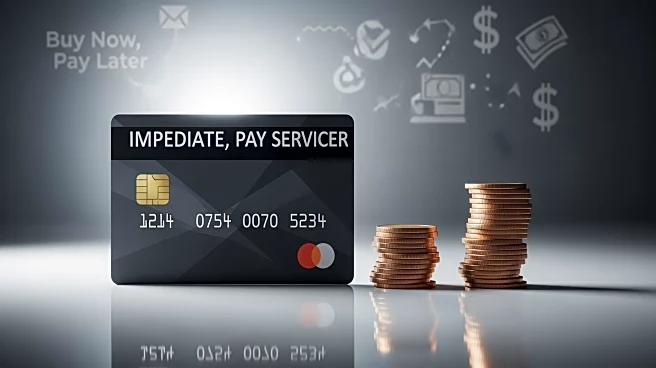What's Happening?
The use of Buy Now, Pay Later (BNPL) services has led to increasing debt among consumers, as highlighted by the experiences of individuals like Abi, a single mother from Sheffield. BNPL services allow
consumers to spread the cost of purchases over time, but can result in mounting debts if payments are missed. Abi, who began using BNPL three years ago, now owes approximately £3,000 due to deferred repayments and additional fees. Debt support organizations report a rise in families seeking help with BNPL-related debts, with services like Klarna and Zilch offering safeguards to manage spending. However, the ease of access to BNPL credit has led to unsustainable borrowing practices, exacerbated by the rising cost of living. Regulatory changes are expected next year, with stricter affordability checks to be implemented for BNPL apps.
Why It's Important?
The growing reliance on BNPL services reflects broader economic challenges, including rising living costs and financial insecurity. While BNPL offers flexibility in managing expenses, it can lead to significant debt accumulation, impacting consumer financial health. The increase in BNPL-related debt highlights the need for regulatory oversight and consumer education on responsible borrowing. As BNPL services become more prevalent, understanding their impact on consumer behavior and financial stability is crucial for policymakers and financial institutions.
What's Next?
Regulatory changes are anticipated next year, with BNPL apps facing stricter affordability checks to prevent unsustainable borrowing. Debt support organizations continue to assist consumers struggling with BNPL-related debts, emphasizing the importance of financial literacy and responsible borrowing practices. The evolving regulatory landscape will shape the future of BNPL services and their role in consumer finance.









